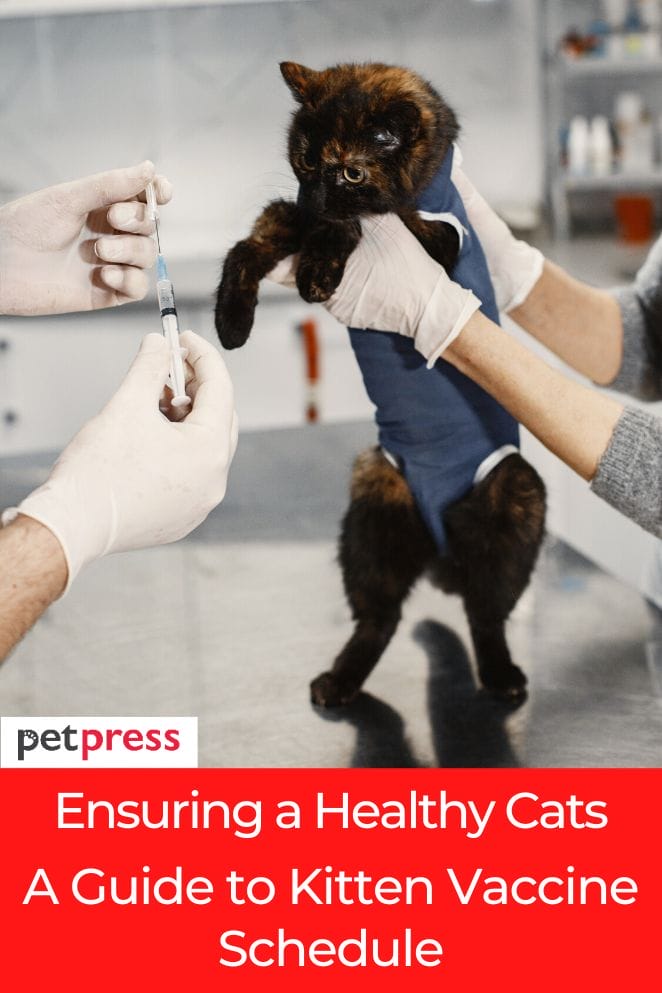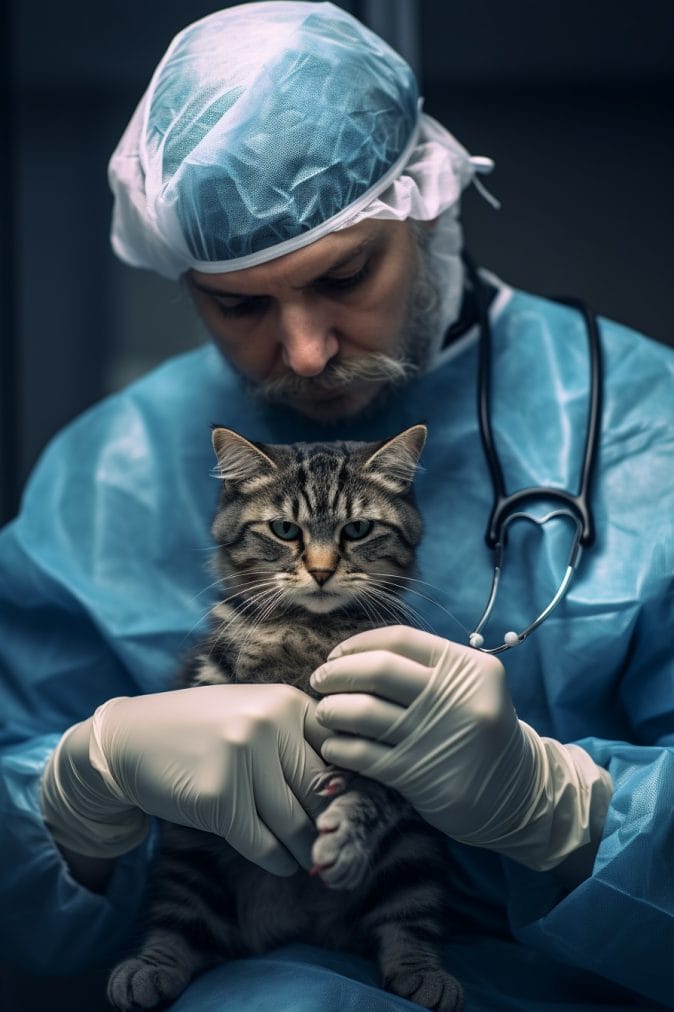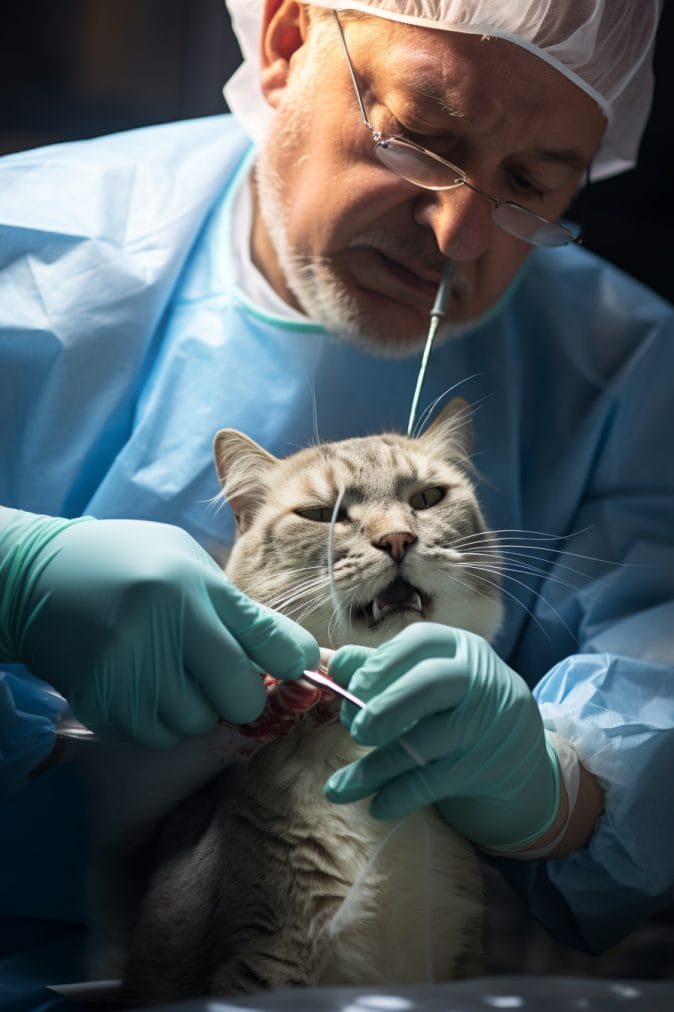
Bringing a new kitten into your home is an exciting time, and ensuring they receive the proper vaccinations is essential for their health and well-being.
In this guide, we’ll cover everything you need to know about the kitten vaccine schedule, including why it’s important, the specific shots kittens need, when to vaccinate, potential side effects, and the associated costs.
Why Vaccinate?
Vaccinating kittens is essential for their health and well-being.
Vaccinations help protect kittens from severe infectious diseases and prevent them from passing anything nasty on to other animals in the area.
Here are some benefits of vaccinating kittens:
- Read also: The Third Eyelid in Cats
- Read also: How Heavy Should My Cat Be
Protection against infectious diseases
Vaccinations serve as a shield, guarding kittens against a spectrum of infectious diseases.
This protective measure includes defenses against feline viral rhinotracheitis, calicivirus, panleukopenia, and rabies.
Given that these diseases can pose severe and life-threatening risks, vaccinating kittens becomes a fundamental aspect of securing their long-term health.
Prevention of disease transmission
Beyond safeguarding the vaccinated kitten, vaccinations play a critical role in preventing the spread of diseases to other animals in the vicinity.
This becomes especially significant if there are other pets in the household or if the kitten interacts with animals in the community.
By curtailing the transmission of illnesses, vaccinations contribute to the overall well-being of the broader animal population.
Compliance with the law
In numerous regions, compliance with legal requirements mandates the rabies vaccine for all cats and dogs.
By vaccinating kittens, pet owners not only prioritize the health of their furry companions but also adhere to local laws and regulations.
This ensures responsible pet ownership and contributes to public health initiatives.
Cost-effective
Vaccinating kittens proves to be a cost-effective strategy for pet owners.
The expenses associated with vaccinations are typically much lower than the costs incurred in treating serious illnesses or diseases.
By investing in preventive measures, such as vaccinations, pet owners can potentially avoid the financial burden of extensive medical treatments down the line.

Kitten Vaccination Schedule
Here’s a typical kitten vaccination schedule to help you keep track of when your kitten should receive their shots:
| Age | Vaccines |
| 6-8 weeks | FVRCP |
| 9-11 weeks |
FVRCP (2nd round); Optional: FeLV, FIV
|
| 12-14 weeks |
FVRCP (3rd round); Optional: FeLV (2nd round), FIV (2nd round)
|
| 15-17 week |
FVRCP (4th round), Rabies; Optional: FIV (3rd round)
|
| 1-3 years |
FVRCP booster, Rabies (2nd round); Optional: FeLV & FIV boosters (annually)
|
What shots do kittens need and when?
Understanding the essential vaccinations and the appropriate timing for kittens is crucial for their well-being.
Here’s a breakdown:
Core vaccinations
The primary vaccinations recommended for kittens include the FVRCP vaccine, guarding against feline viral rhinotracheitis, calicivirus, and panleukopenia.
Additionally, the rabies vaccine is considered a core vaccination and is often mandated by law in various regions.
When to start vaccination
Kittens can begin receiving vaccinations at a tender age, typically around 6-8 weeks.
Following the initial shot, subsequent vaccinations are administered every 3-4 weeks until the kitten reaches 16 weeks old.
Adhering to this schedule is vital to ensure the kitten develops robust immunity against prevalent feline diseases.

Are there kitten vaccine side effects or risks?
Kittens generally handle vaccinations well, but some may encounter mild side effects like temporary lethargy or a slight fever.
Serious adverse reactions are infrequent but can happen.
It’s crucial to communicate any worries with your veterinarian and keep an eye on your kitten for any unusual symptoms following their vaccinations.
This proactive approach ensures that your furry friend receives the necessary care and attention, promoting their overall well-being.
How much are kitten vaccinations?
The expense of kitten vaccinations is influenced by factors such as your geographical location and the specific vaccines deemed necessary.
Generally, the initial series of core vaccinations for kittens may average between $75 and $100.
Additional expenses may apply for non-core vaccines and any required booster shots.
It’s advisable to check with your veterinarian for precise cost details and to ensure your kitten receives the appropriate vaccinations within your budget.
- Read also: 6 Tips How To Groom a Cat
- Read also: 8 Healthiest Cat Breeds: Which One Is Right for You
Key Takeaways
Ensuring your kitten’s health involves vital steps, with vaccination playing a key role in shielding them from prevalent feline diseases.
The core vaccinations encompass the FVRCP vaccine and the rabies vaccine, forming a robust defense against potential health threats.
Adhering to a well-structured vaccination schedule is pivotal, in safeguarding your kitten’s long-term health and overall well-being.
FAQs
Kittens typically receive the FVRCP vaccine and the rabies vaccine as part of their core vaccination schedule. The specific timing for these shots is outlined in the kitten vaccination schedule.
While most kittens tolerate vaccinations well, some may experience mild side effects. Serious adverse reactions are rare but can occur. It’s important to discuss any concerns with your veterinarian.
The cost of kitten vaccinations can vary, but the initial series of core vaccinations typically ranges from $75 to $100.
- Does Cat Litter Melt Ice? The Complete Guide to Winter Safety - January 30, 2026
- Happy Tail Dogs: Understanding This Common Canine Condition - January 29, 2026
- How Cold Can Outdoor Cats Handle? Feline Winter Safety - January 27, 2026


GIPHY App Key not set. Please check settings